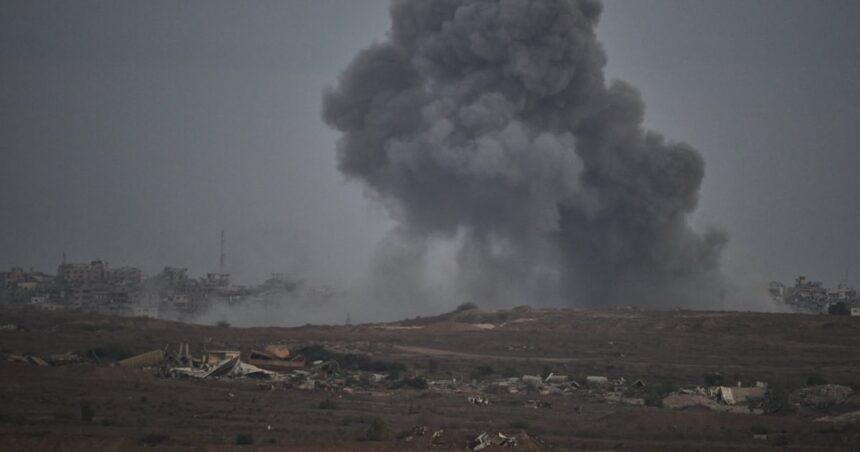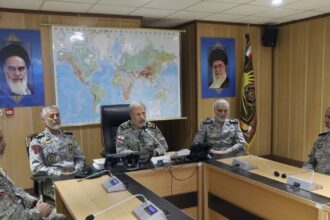In the shadow of a conflict that has claimed thousands of lives, Israeli and Hamas delegations are converging on Cairo this week in what diplomats describe as potentially the most promising opportunity yet to secure a ceasefire in Gaza. The talks, scheduled to resume Thursday after weeks of diplomatic maneuvering, represent a critical juncture in efforts to halt the devastating seven-month war.
Senior Egyptian officials, speaking on condition of anonymity due to the sensitivity of the negotiations, revealed that both parties have shown “cautious flexibility” in preliminary discussions. The Cairo talks follow intense behind-the-scenes pressure from the United States, Egypt, and Qatar, who have been working tirelessly to bring the warring sides back to the negotiating table.
“These negotiations represent our best chance yet at establishing a sustainable cessation of hostilities,” said Ibrahim Khalil, a senior analyst at the Cairo Institute for International Relations. “The humanitarian situation in Gaza has reached catastrophic proportions, creating an imperative for both sides to find common ground.”
At the core of the discussions is a three-phase proposal that would initially pause fighting for six weeks while Hamas releases certain hostages in exchange for Palestinian prisoners held in Israel. Israeli officials have insisted on maintaining military control of the Philadelphi Corridor along Gaza’s border with Egypt, a position that has been a significant sticking point in previous rounds of talks.
The humanitarian crisis in Gaza continues to deteriorate, with the United Nations reporting that more than 90% of Gaza’s 2.3 million residents have been displaced, while famine conditions spread through the northern regions of the territory. International aid organizations have warned that each day without a ceasefire agreement translates to more civilian casualties and deeper humanitarian suffering.
Prime Minister Benjamin Netanyahu’s government faces mounting pressure both internationally and domestically. Weekly protests across Israel have grown in size and intensity, with families of hostages and anti-war demonstrators demanding the government prioritize a deal to bring home the remaining captives. Netanyahu has walked a political tightrope, attempting to balance these demands against pressure from far-right coalition partners who oppose any agreement that might leave Hamas with governing authority in Gaza.
“Netanyahu is facing perhaps the most difficult political calculation of his career,” explained Dr. Sarah Cohen of the Toronto Institute for Middle Eastern Studies. “The longer the conflict continues, the more his coalition threatens to fracture, yet conceding too much to Hamas risks collapsing his government entirely.”
Hamas, meanwhile, enters the talks with its leadership structure significantly degraded after months of Israeli military operations. The group has insisted on a permanent ceasefire and complete Israeli withdrawal from Gaza as preconditions for any agreement to release all remaining hostages. Their negotiating position has been complicated by internal divisions and the practical challenges of maintaining command and control within Gaza.
The United States has devoted considerable diplomatic resources to facilitating a breakthrough, with Secretary of State Antony Blinken making his seventh trip to the region last month. “America remains fully committed to supporting these negotiations and helping the parties reach an agreement that ends the fighting, secures the release of all hostages, and allows for the increased flow of humanitarian assistance,” Blinken stated during his visit to Tel Aviv.
Regional dynamics add further complexity to the negotiations. Egypt, concerned about potential refugee flows across its border, has significant stakes in stabilizing Gaza. Similarly, Jordan and Saudi Arabia have pressed for a resolution that prevents wider regional escalation, particularly given ongoing tensions between Israel and Hezbollah along the Lebanese border and Iran’s threats of retaliation for an attack on its embassy compound in Damascus.
While previous ceasefire initiatives have collapsed amid mutual recriminations, the sustained international pressure and worsening conditions on the ground may finally create the conditions necessary for compromise. Financial markets across the Middle East have reacted positively to news of the resumed talks, with modest gains seen on the Tel Aviv Stock Exchange and in Gulf markets.
As the delegations prepare for Thursday’s crucial sessions, millions of civilians caught in this brutal conflict wait with diminishing hope. The question that haunts every aspect of these negotiations remains: Will the political will finally exist on both sides to prioritize human suffering over maximalist demands, or will Gaza’s tragedy continue to unfold with no end in sight?











